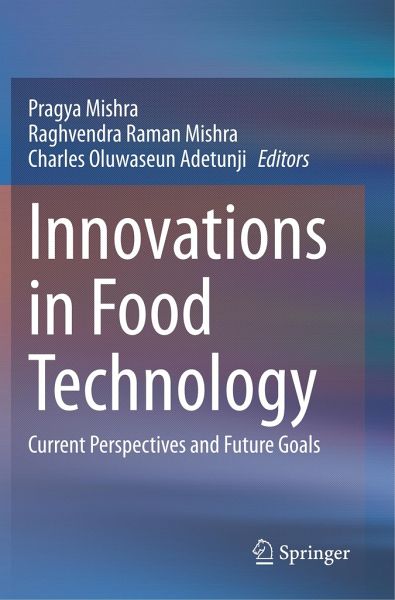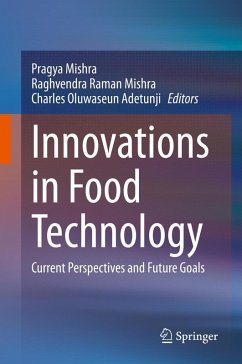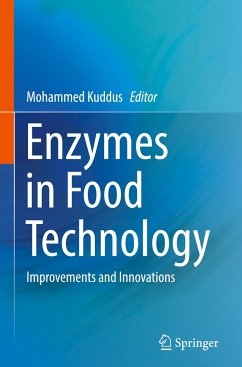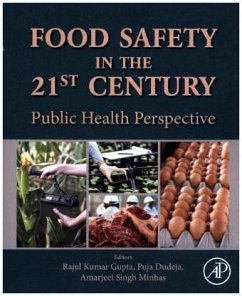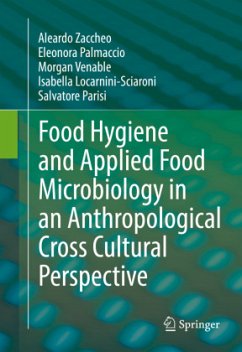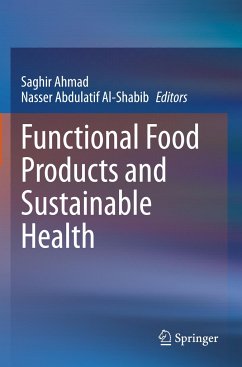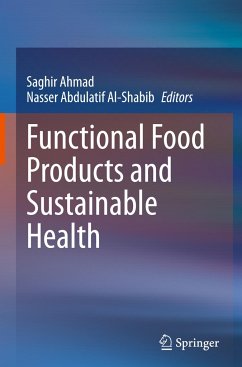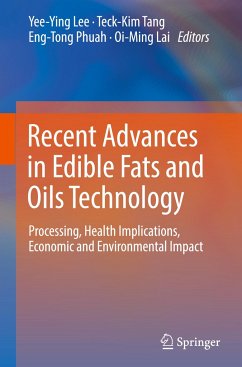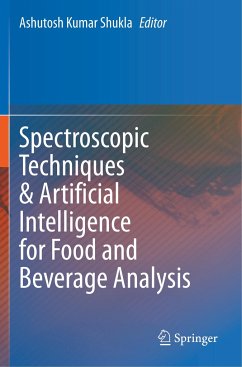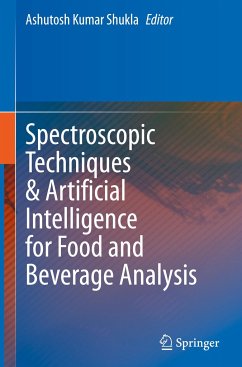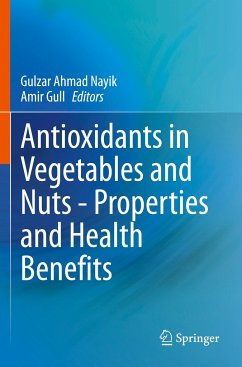Dr. Pragya Mishra is presently working as Assistant Professor of Food Processing and Management, DDU KAUSHAL Kendra, RGSC, Banaras Hindu University. Dr. Pragya completed her Master degree in Food Technology in the year 2010 from Centre of Food Technology, University of Allahabad with distinction. She did her dissertation research on; "Feasibility studies for enhancement of sensory attributes of pearl millet weaning food by fermentation", under the supervision of Prof. Latha Sabikhi, National Dairy Research Institute, Karnal, Haryana. She had been qualified University Grant Commission National Eligibility Test Examination and awarded by Doctor of Philosophy in Food Technology from Centre of Food Technology, Institute of Professional Studies, University of Allahabad, India in year 2017, title on "Isolation and molecular characterization of edible Spirulina species under different abiotic stress condition and evaluation of their food supplement" under the supervision of Prof. Sheo Mohan Prasad, University of Allahabad. She worked as Senior Research Fellow of Uttar Pradesh Council of Agricultural Research funded project under the guidance of Prof. Neelam Yadav, Director-Center of Food technology, University of Allahabad. She had received an accession number (GenBank: KM407008.1) from National Center of Biotechnology Information, USA for new isolates of Spirulina maxima species from cyanobacterial isolates collected from the paddy fields of Prayagraj (Soraon) region targeting specific 16sRNA gene. She had got A patent on Potato flakes energy bar (Application no. - 201711014441). She has published more than 20 international and national papers in peer reviewed journals and 4 edited books and contributed in several chapters in international books. She had received MFPA Technology, 2018, Young Scientist award, organized by Banaras Hindu University. She is Life Time Member "All India Medical Laboratory Technologists Association" New Delhi and "Society of Bacteriophage" Varanasi and member of Association of Food Scientists & Technologists India. Dr. Mishra is also Editor of International journal of academic research and development (ISSN.2395-1737). Dr. Raghvendra Raman Mishra, is working as Assistant Professor of Medical Lab. Technology, DDU KAUSHAL KENDRA, RGSC and Warden of Shivalik Hostel (Received Best Hostel Award, since 2016 to 2019) of South Campus, Banaras Hindu University from academic session 2016. Dr. Mishra recived his Master's degree in Biomedical Technology in the year 2005 from Jiwaji University, Gwalior. He had completed his project from Virology Laboratory, School of Life Sciences Jawaharlal Nehru University, New Delhi. He earned his Ph. D. (2009) in Biomedical Technology from Molecular Oncology Laboratory, Department of Surgical Oncology, Institute of Medical Sciences, Banaras Hindu University, Varanasi. He then went to Thyrocare Technologies Limited, Navi Mumbai as Officer-Central Processing Lab (2010). In 2011 he joined post doctoral research associate at Bacteriophage Research Lab, Department of Microbiology, Institute of Medical Sciences, Banaras Hindu University, Varanasi. Since 2012-2015 he had given his duties as Assistant Professor in an affiliated institute at Department of Biotechnology (Institute Code 641) and appointed as Group Leader of Controller of Examination of Dr. APJ Abdul Kalam Technical University, Lucknow. With these 12 years of research and teaching experiences, his area of specializations are Biomedical Technology, Biotechnology, Bioinformatics, Cancer Biology, Microbiology, Molecular Biology and Food Biotechnology. He had published more than 50 National and International Peer Reviewed Papers. He had received grant from Department of Science and Technology, Government of India funded project of Rapid Grant for Young Investigator (2010). He did course of "General Course on Intellectual Property Right" from World Intellectual Property Organization, (WIPO). He had received Fellowship of University Grant Commission, Indian Council of Medical Research & Council of Scientific and Industrial Research New Delhi at various stage of his research. He is Life Time Member of "The Cytometry Society" Hyderabad & "All India Medical Laboratory Technologists Association" New Delhi and "Society of Bacteriophage" Varanasi. He is an Associate editor of Journal of Applied Pharmaceutical Science and Research (ISSN. 2581-5520) and Editor of International journal of academic research and development (ISSN. 2395-1737). Charles Oluwaseun Adetunji (Ph.D) is a Faculty member at the Microbiology Department, Faculty of Science, Edo University Iyamho (EUI), Edo State, Nigeria, where he utilized the application of biological techniques and microbial bioprocesses for the actualization of sustainable development goals and Agrarian revolution, through quality teaching, research, and community development. He is presently the Ag. Director of Intellectual Properties and Technology Transfer; Chairman Committee on Research Grant and Associate Professor of Microbiology and Biotechnology at EUI. He has won several scientific awards and grants from renowned academic bodies like Council of Scientific and Industrial Research (CSIR) India, and Department of Biotechnology (DBT) India, The World Academy of Science (TWAS) Italy, Netherlands Fellowship Programme (NPF) Netherlands, The Agency for International Development Cooperation; Israel, Royal Academy of Engineering, UK among many others. He has filled several scientific patents on Bioherbicides, Biopesticides, Nanobiosurfactants, Nanobiopesticdes and many more. He has published over 150 scientific journals and conference proceedings in international and local refereed journals. He is currently editing several Biotechnology text book with Elsevier. The breadth of his scholarly contributions to research are evident from his contributions,which cover topics relating to food security, Agriculture and Environmental sustainability. His research interest includes Microbiology, Biotechnology, Post-harvest management, and Nanotechnology. He is an editorial board member of many international journals and serves as a reviewer to many double-blind peer review journals like Elsevier, Springer, Francis and Taylor, Wiley, PLOS One, Nature, American Chemistry Society, Bentham Science Publishers etc. He is a member of many scientific and professional including bodies like American Society for Microbiology, Nigerian Young Academy, and, Biotechnology Society of Nigeria, Nigerian Society for Microbiology. He has won a lot of international recognition and also acted as a keynote speaker delivering invited talk/ position paper at various Universities, research institutes and several centers of excellence which span across several continent of the globe. He has over the last fifteen years built strong working collaborations with reputableresearch groups in numerous and leading Universities across the globe. He is the convener for Recent Advances in Biotechnology, which is an annual international conference where renown Microbiologist and Biotechnologist come together to share their latest discoveries. He is the Founder & CEO of BECTIK Biotechnology and Nanotechnology Company. His Biotechnology Company consist a team of leading academics in their fields and thrive to deliver solutions all around Bio & Nanotechnology. The company also deliver solutions that are tailored to your business needs and for anyscale.
